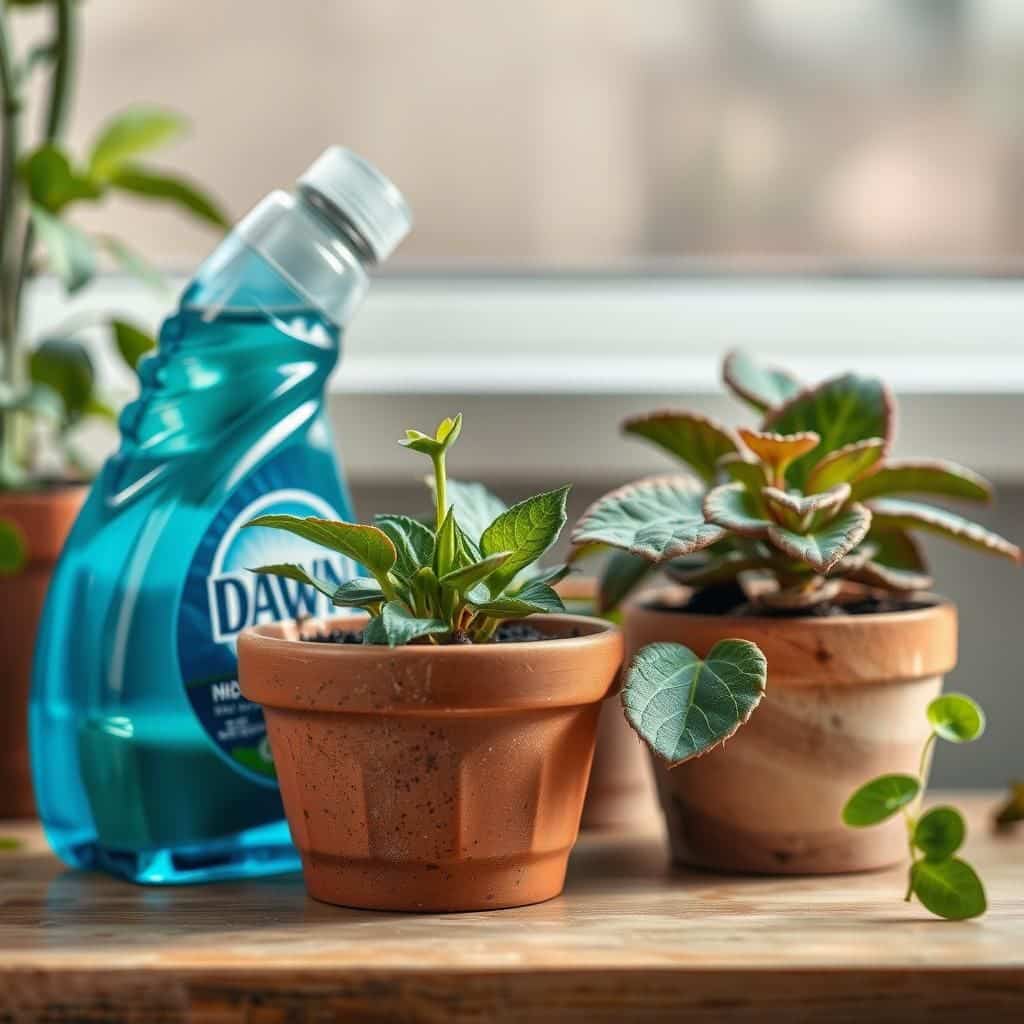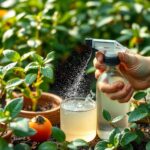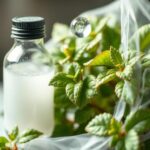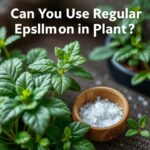Will Dawn Dish Soap Hurt My Plants? Discover the Truth About Its Effects!

When it comes to gardening, the choice of cleaning products can significantly impact plant health. One common question among enthusiasts is whether Dawn Dish Soap, a popular household cleaner, can harm plants. While its effectiveness in cutting grease and grime is widely recognized, its compatibility with sensitive flora remains a subject of debate. Understanding the chemical composition and potential effects of this dish soap on plant life is essential for gardeners seeking to maintain healthy ecosystems. In this article, we will explore the truths about Dawn Dish Soap, examining its potential risks and benefits for your beloved plants.
Will Dawn Dish Soap Hurt My Plants?
Using Dawn dish soap on plants can be a contentious topic among gardeners. While some people advocate for its use as a natural pesticide due to its ability to suffocate pests and break down certain residues, it is crucial to consider its potential effects on plant health. If used excessively or not diluted properly, Dawn soap can lead to leaf burn or damage to the plant's protective outer layer, making it vulnerable to disease and environmental stress. Therefore, it is advisable to use it with caution, ensuring to dilute it and test on a small area first.
Understanding Dawn Dish Soap Ingredients
The ingredients in Dawn dish soap primarily consist of surfactants, which help break down grease and organic materials. While these surfactants can effectively combat pests, they can also strip away the natural oils and protective coatings of plants, leading to dehydration and damage if not used carefully. Always check for any additives or fragrances that might be harmful to your plants.
Safe Dilution Ratios for Plants
When using Dawn dish soap on plants, it is essential to dilute it properly to minimize harm. A common dilution ratio is about one to two teaspoons of soap per quart of water. This mixture can be used to both treat pests and clean the leaves, ensuring that it is less likely to harm the plant while still being effective against unwanted insects.
Testing for Plant Sensitivity
Before applying Dawn dish soap broadly, it's wise to conduct a sensitivity test. Apply the diluted solution to a small, inconspicuous part of the plant and wait for 24 hours to observe any negative reaction, like discoloration or wilting. If any adverse effects are noticed, discontinue use immediately to protect the overall health of the plant.
Alternative Methods for Pest Control
For gardeners concerned about the potential harm from Dawn dish soap, there are numerous alternative pest control methods available. Options include neem oil, insecticidal soap, or homemade sprays using natural ingredients like garlic or hot pepper. These alternatives can offer effective pest control without the risk of damaging your plants as much as dish soap might.
Signs of Damage from Dish Soap
If plants have been exposed to excessive amounts of Dawn dish soap, they may exhibit specific signs of damage. Common indicators include yellowing leaves, drooping stems, or a crisp, burnt appearance on the leaf edges. Recognizing these signs early can be crucial for reverting any negative effects and ensuring your plants remain healthy.
| Effect | Likelihood | Severity |
|---|---|---|
| Leaf Burn | High | Moderate |
| Dehydration | Medium | High |
| Pest Control Failure | Medium | Low |
| Plant Stress | High | High |
| Leaf Discoloration | Low | Moderate |
What plants are sensitive to soap?
:max_bytes(150000):strip_icc()/GettyImages-1432004377-ab33c2751d3545ff8dd7ad87f382604b.jpg)

Certain plants are sensitive to soap, especially when it comes to the use of commercial soaps or detergents that can potentially harm their foliage. The sensitivity usually arises due to the ingredients found in these products, which can cause leaf burn, discoloration, or even death of the plant if too concentrated or improperly used.
Common Plants Sensitive to Soap
Several plants are particularly known for their sensitivity to soap. Here are some examples:
- Ferns: These delicate plants often show signs of distress from soap use, as their leaves can easily become damaged.
- Succulents: Given their thick, waxy leaves, many succulents can be adversely affected by soap, leading to leaf drop or rot.
- Hydrangeas: These flowers may experience leaf burn and discoloration when exposed to soap, especially if they are already stressed.
- Orchids: Sensitive to residues left by soap, orchids can develop fungal issues if the soap clogs their pores.
- Carnivorous Plants: These plants are particularly sensitive since they often thrive in specific environments, and soap can disrupt their delicate ecosystems.
Symptoms of Damage from Soap
When plants are affected by soap, they may exhibit various symptoms which can indicate stress. Recognizing these signs early can help in mitigating damage:
- Yellowing Leaves: When foliage starts to turn yellow, it may be a sign of soap toxicity affecting the plant's nutrient uptake.
- Leaf Burn: Brown edges or spots on leaves can indicate that the soap solution was too strong or improperly applied.
- Wilting: Even with adequate watering, sensitive plants may wilt if soap has interfered with their ability to absorb water.
- Fungal Issues: Soap residues can lead to increased humidity around the plant, creating a breeding ground for fungi.
- Leaf Drop: Many plants may react to soap by shedding leaves, which can significantly affect their overall health.
Safe Alternatives to Soap
For those seeking alternatives to traditional soap, several options exist that are typically gentler on plants:
- Neem Oil: An organic solution, neem oil can deter pests without harming sensitive plants.
- Insecticidal Soap: Formulated specifically for plants, these soaps use natural ingredients and are less likely to cause damage.
- Homemade Soap Solutions: Using mild castile soap mixed with water can provide pest control without the harsh chemicals found in many commercial products.
- Essential Oils: Oils like peppermint or clove can repel pests while being less damaging to plant foliage.
- Water Spray: Sometimes, simply rinsing the plants with water can help remove pests without the use of soap.
How to Test Plant Sensitivity
Before applying any soaps or treatments to your plants, it's wise to perform a sensitivity test:
- Patch Test: Apply a diluted soap solution to a small section of the plant and observe it for 24-48 hours.
- Environmental Conditions: Ensure that the plant is healthy and not under stress before testing to get accurate results.
- Monitor for Symptoms: After the test, watch for any signs of distress as previously described.
- Adjust Concentration: If no adverse reactions occur, you might try a slightly more concentrated solution.
- Document Results: Keeping a record of what treatments work or don’t can help in future applications.
Best Practices for Using Soap on Plants
When using soap on sensitive plants, following best practices can minimize damage:
- Dilution: Always dilute soap with water according to label instructions to reduce potential damage.
- Avoid Direct Sunlight: Apply soap in the early morning or late afternoon to avoid leaf burn.
- Rinse After Application: After a few hours, rinse the plants with clean water to remove any residual soap.
- Limit Frequency: Use soap treatments sparingly to avoid stress on the plant.
- Know the Specific Plant’s Needs: Research individual plant species to understand their unique tolerances.
Will soapy water hurt your plants?

Soapy water can have varying effects on plants, depending on the concentration of soap used and the type of plants being treated. In general, a mild solution of soapy water can be safe for many plants and is commonly used as a natural pesticide to help control pests like aphids, spider mites, and whiteflies. However, it's essential to consider a few key factors to ensure that using soapy water does not harm your plants.
See also:
Effects of Soap Concentration
The concentration of soap in the water mixture is critical when determining whether soapy water will harm plants.
- Low concentration: A solution that contains about 1-2 teaspoons of mild liquid soap per quart of water is generally safe for most plants.
- High concentration: Using too much soap can lead to leaf burn or root damage, especially with sensitive plants.
- Testing: It’s recommended to test any soap solution on a small part of the plant before applying it broadly.
Types of Soap Used
Not all soaps are suitable for plants; the type of soap greatly affects its safety and effectiveness.
- Mild soaps: Soaps that are biodegradable and free from additives, fragrances, or dyes are typically safer for plants.
- Dish soap: Common household dish soaps can work, but it's important to ensure they are not too concentrated or contain harmful chemicals.
- Antibacterial soaps: These should be avoided, as they may contain additives that can harm plant health.
Plant Sensitivity
Different plants have varying levels of sensitivity to soapy water.
- Succulents and cacti: These plants are usually more sensitive to soaps and may suffer from damage more readily.
- Leafy vegetables: Generally tolerant of gentle soap solutions, but it’s crucial to rinse them well afterward to avoid residual soap residues.
- Flowering plants: Some may react poorly, particularly those with fuzzy leaves or fine hairs.
Application Techniques
How you apply soapy water can influence its impact on plants.
- Avoid direct sunlight: Apply soapy water early in the morning or late in the afternoon to prevent leaf burn from the sun.
- Spray lightly: Use a fine mist to coat plants evenly without saturating them, which reduces the risk of damage.
- Rinse afterward: If using on edible plants, it's essential to rinse the plants with clean water after application.
Signs of Damage
Being able to recognize the signs of damage from soapy water is crucial for plant care.
- Wilting leaves: Leaves may droop if they become too saturated with soap solution.
- Leaf burn: Brown edges or spots may appear on the leaves if the soap concentration is too high.
- Stunted growth: Extended use of soap solutions can impede growth, leading to new leaves appearing smaller or fewer in number.
Questions from Our Readers
Will Dawn dish soap harm my plants?
Dawn dish soap can potentially harm your plants if used in excessive amounts or improperly diluted. While it is often used as an insecticide, too much soap can strip the natural oils from the plant leaves, causing damage. Always test on a small area first and ensure proper dilution.
How should I dilute Dawn dish soap for plants?
To safely use Dawn dish soap on plants, mix about one to two teaspoons of soap in a quart of water. This dilution helps minimize the risk of damage while still being effective against pests. Always remember to shake the mixture well before use.
Can I use Dawn dish soap on all types of plants?
While Dawn dish soap is generally safe for many plants, certain sensitive species—such as some succulents—may be more prone to damage. It is important to research and consider the specific needs of your plants before application.
See also:
What pests can Dawn dish soap help eliminate?
Dawn dish soap is effective against a variety of pests, including aphids, spider mites, and whiteflies. The soap works by suffocating the insects and disrupting their cell membranes, making it a useful option in pest management when used correctly.

If you want to read more articles like Will Dawn Dish Soap Hurt My Plants? Discover the Truth About Its Effects!, we recommend you check out our Plants category.
Leave a Reply
Related Articles